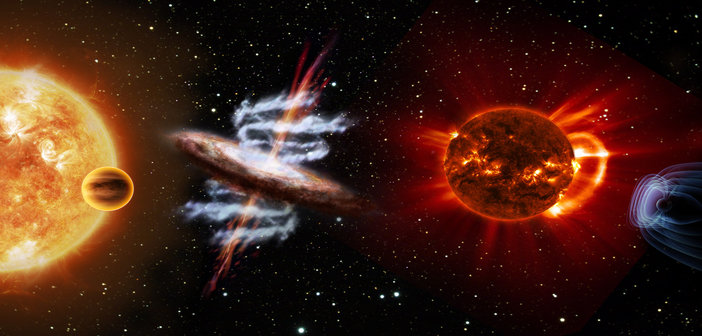Chris Skidmore, science minister for the UK, has announced £7m (US$9m) of funding for a new mission to study how solar wind interacts with the Earths magnetosphere, potentially impacting satellites, power grids and communication networks. Part of the funding for the Solar Wind Magnetosphere Ionosphere Link Explorer (SMILE) mission will be used to develop a soft x-ray imager (SXI) instrument, a project which is being led by the University of Leicester, with scientific mission leadership at UCL Mullard Space Science Laboratory, and support from the Open University, ahead of the launch in 2023. The UK science minister also announced the UKs agreement with partners including the European Space Agency (ESA) in a second mission, called Planetary Transits and Oscillations of stars (PLATO), which will search for Earth-like planets orbiting alien stars. The UK Space Agency has invested £25m (US$33m) in the PLATO mission, which is being scientifically led by the University of Warwick. Space weather such as solar wind is a potential threat to our communications systems here on Earth so this research examining how the wind interacts with our planets electromagnetic system is important, said Skidmore. Meanwhile, work to discover Earth-like planets around other stars may eventually lead to us answering the question of whether extra-terrestrial life exists. Professor Paul Monks, pro-vice-chancellor and head of the College of Science and Engineering at the University of Leicester, said, SXI will be the first instrument to provide true global imaging of the solar wind exchange process within the magnetosphere, the results of which will have meaningful implications for safeguarding our environment on Earth. A recent ESA study estimated that the potential socio-economic impact in Europe from a single, extreme space weather event could reach 15bn (US$17bn). Much of this disruption could be avoided through accurate forecasting. Professor Graziella Branduardi-Raymont, SMILE mission co-principal investigator at UCL Mullard Space Science Laboratory, said, Space weather remains one of the biggest risks facing humanity and SMILE will make a fundamental contribution in furthering our scientific understanding to help mitigate its impact.
UK to investigate the impact of solar winds on Earths magnetosphere

Image courtesy of ESA
Previous ArticleNOAA and NCAR collaborate on common modeling infrastructure
Next Article In this Issue – April 2019


